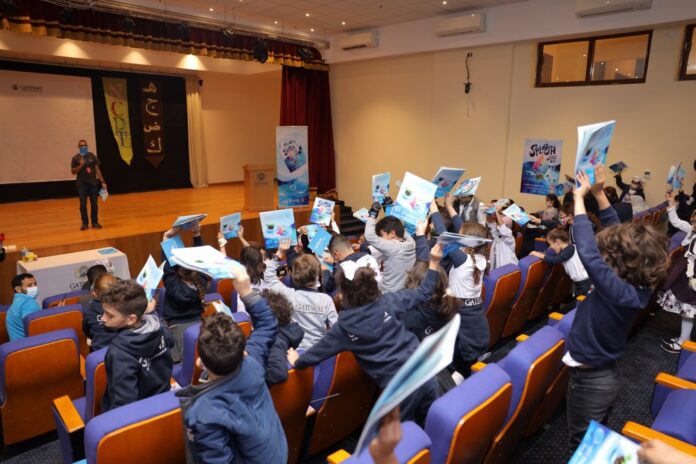Children see what adults tend to ignore. We might walk past a leaky tap or half glass of water and think nothing of it. But children have a sense for such things, and if we can teach them how to save water, they can help the future of our most precious resource.
Fortunately, teaching children to conserve water is not that difficult, and doing so even makes it easier for the adults to change their ways, says Chetan Mistry, Strategy and Marketing Manager at Xylem Africa:
“Every parent can tell you how their children remind them of what’s right. The younger you teach them the right values, the sooner they’ll start reminding you of those values. Kids are honest and forthright—they’ll tell you if you’re doing the wrong thing! Teaching them about water is a great way to teach us all about water.”
Such lessons are essential. Water resources are under strain worldwide, and water infrastructure struggles to cope with growing populations and shifting weather patterns. Every person must do their part to save, protect and recycle water where they can.
Children can be excellent ambassadors for water conservation. Here are three easy ways to create that attitude:
Give them a special bottle
Provide a child with their own special bottle that they use to drink water. They can learn to refill it themselves and apply some of the other tips below, such as watering plants with leftover old water. Let them store the bottle in the fridge for a cool and refreshing drink. Not only will the bottle help them feel empowered, but if they get into the habit of enjoying water, they will have fewer cravings for sugary juices and fizzy drinks.
Show them how to reuse water
Water is highly recyclable and reusable, yet we don’t always reflect this when we dump water down the drain. Involve kids to help recycle water. Encourage them to give extra and old water to plants, including from their personal bottles. They can also discard ice cubes and old water for pets or plants. You can make a game of it: when washing vegetables or fruits, use a container with water, and afterwards, help the kids pour the water on houseplants or a vegetable garden.
Turn them into leak detectives
Leaks waste a lot of water. A tap that drips six times a minute wastes over a thousand litres of water a year—enough to fill seven bathtubs. Encourage kids to look for leaky faucets and hose pipes. You can also teach them to close taps while brushing their teeth and to use a basin with water for rinsing rather than constantly running the tap. It will be good for them and your utility bill.
Here is a bonus tip: help them take an interest in water, exploring where it comes from and why it’s important for all of us. Tell them interesting facts, such as that our planet is seventy percent water, but only a very tiny part (3 percent) of that is fresh water. A range of children’s books deals specifically with water themes, combining water protection with reading and sharing a fun adventure.
Splash, the drop-sized hero created in Africa for African children, is one of these heroes. Children join him on his adventure with Thami the tortoise across Africa, showing why water is so vital in addition to clever ways to conserve it. As they travel across the plains of the African continent, they encounter colourful characters such as Vuyo the catfish and Liya the elephant and discover how water brings life.
“Xylem conceptualised the creation of Splash because we wanted a fun and creative way to introduce children to water themes,” says Mistry. “It’s been a huge success and Splash has now debuted in several African countries, with a French version on the way.”
Water is vital for life. We teach our children not to waste or pollute. If we can teach them to feel the same way about water, we help them improve their future and help ourselves learn the same good habits for our sake and theirs.
What have you done today to show your kids how to look after water? Start with these three tips and a great storybook and help create a brighter future for everyone.









